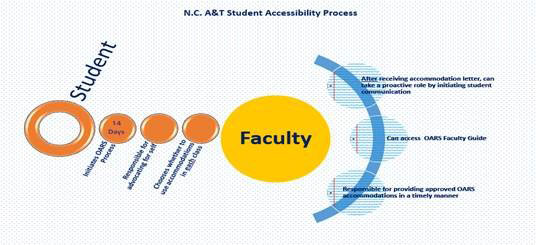Frequently Asked Questions
Contracts
Public Records
Litigation Holds
Disability
An individual with a disability is one who has a physical or mental impairment that substantially limits one or more major life activities and has documentation of such disability; or is regarded as having a disability. Types of disabilities include: vision; .movement, thinking, and learning. Even when a disability is shared by different individuals, the disability can affect each individual differently.
Individuals who have disabilities have protections from unlawful discrimination under North Carolina and federal law. For instance, the Americans with Disabilities Act prohibits discrimination against individuals who have disabilities in all areas of public life. Similarly, North Carolina law prohibits employers from failing to hire, promote, or consider a person because of that person’s disability.
Employees can contact the University’s Human Resources Office if they have concerns about unlawful discrimination. Students who have concerns about unlawful discrimination can contact their Advisor, Dean and Office of Accessibility Resources.
Employees. A “Reasonable Accommodation” is .a modification or adjustment to a job, employment practice, or the work environment so that there are equal employment opportunities.
Students. The definition of “Reasonable Accommodation” is extended to students in the learning environment.
The University is required to reasonably accommodate qualified individuals with disabilities except where the accommodation would create an undue hardship on the University. Reasonable Accommodations to a student cannot fundamentally alter the education program.
Whether referring to students or to employees, a reasonable accommodation does not have to be granted automatically; the employee or student must request the reasonable accommodation. Requests for reasonable accommodations must be reviewed on a case-by-case basis.

Student
- Initiates OARS Process (14 days)
- Responsible for advocating for themselves
- Chooses whether to use accommodations in each class
Faculty
- After receiving accommodation letter, can take a proactive role by initiating student communication
- Can access OARS Faculty Guide
- Responsible for providing approved OARS accommodations in a timely manner


